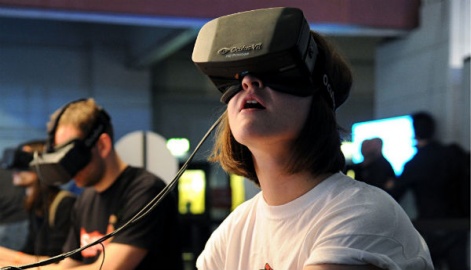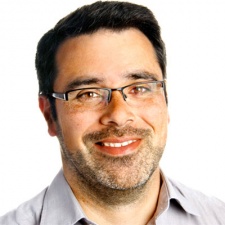Making sure you start the year in style, Pocket Gamer Connects London is happening on 13-14 January 2015 at Vinopolis.
And tickets are available now.
So to give you a hint at what you can expect, we're shining the spotlight onto our speakers to provide a deeper look at the personalities who will be taking the stage at PG Connects London 2015.
Finding balance
In his seven years at Biodroid, Ricardo has led the studio's transition from consoles to mobile and from there to multi-platform freemium games, building a successful game portfolio with titles like Billabong Surf Trip, Cristiano Ronaldo FreeStyle, MegaRamp Skate&BMX, and The Activision Decathlon.
His current position gives him the responsibility of studio partnerships with global sports brands. devices manufacturers and carriers.
Pocket Gamer: We're showcasing the Best of British at Pocket Gamer Connects so how much of an impact have British game developers had in your gaming life?
Richardo Flores Santos: Being Portuguese and having grown up with Spectrum, games made in the UK have made a big mark in my childhood and shaped my gaming preferences.
Developers like Ocean and Gremlin are names that stand out to me. I can't forget about Rare's Star Fox, Team17's Worms, or Codemasters' TOCA.
Why is user acquisition such a challenge in the mobile business?
I believe that companies without marketing efforts or budget need to find new ways to build awareness for their games. The market values today are impossible for companies that invest almost everything in production while not having a budget for advertising.
It would be awesome for the industry if a new form of monetization appeared.Ricardo Flores Santos
30% percent of a marketing budget is insufficient. It's better to invest in online and traditional media to gain more visits or hits to your game through search engines.
Another thing we can do is sell advertisement space directly to brands and communications agencies. If we have a good volume of downloads the advertisement space becomes more valuable to brands rather than games.
What are the major challenges currently facing games businesses when publishing abroad?
There is barely a local market when you're based in Portugal. It would be impossible to stay alive from our internal market, because of this, our games are always global.
Obviously, we confront localization problems but once again we end up on user acquisition cost when trying to execute campaigns in key markets.
When you bet on the Latin American market, your budget is different from when you bet on the top 3 markets of Europe. In our case, we don't have the budget to think about the USA.
Because of this, we reach this market through blogs and online media.
How can indie developers adapt to survive in the mobile economy?
Innovation and investment are keys, but each key opens a different door.
- Innovation is often the soul of being indie - the search for concepts, art, and original gameplay without the fear of risk.
- Investment opens the door of creating more games, and living off of them. But many times, at the consequence of innovation and untested models in the industry.
When a business starts to grow, your worries start to shift to investment and monetization of your projects. Surviving also sees that you learn to network and gain contacts from other studios to collaborate as partners.
There are many great games where the art comes from one studio and the programming from another, this is one way of sharing risk and guaranteeing better results.
Will new technology like wearable tech and VR change the mobile landscape?
I believe that it won't change radically but will be part of the industry. People who have tried mobile VR games feel the enormous immersive potential and the fun it brings. People who've played small games on their smartwatch also know they can be fun.

For developers these are ways to expand and understand our own games. Creating a game that runs both in VR and non-VR, or having a teaser on a smartwatch is something that is going to happen.
What are you most looking forward to at Pocket Gamer Connects?
Pocket Gamer Connects is all about networking. It's an awesome start to the year, a great place meet with current and new partners, learn about new strategies and projects that will conclude in 2014 and looking at how 2015 will play out.
It's the first forecast of the year, which in Biodroid's case, points in direction to the second semester, so I'll be paying close attention to global pushing.
What's your prediction for the mobile gaming industry in 2015?
The end of Candy Crush and the end of Freemium!
No - but seriously, it would be awesome for the industry if a new form of monetization appeared, but that's more of a wish than a prediction.
As far as predictions go, I would bet on bigger differentiation between smartphones and tablets. I believe that the tablet experience will evolve towards more complex and longer gaming experiences, while smartphones continue to assist quick games based on repetition for when you don't have much time to play.

Grab your tickets for Pocket Gamer Connects London 2015 here!
Don't forget to keep up-to-date with content from our speakers via the Speaker Spotlight hashtag.
And you can check out videos of our speaker talks from PG Connects Helsinki 2014 here.





















